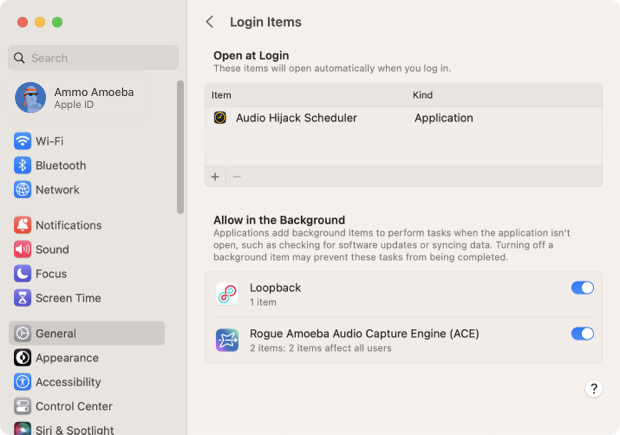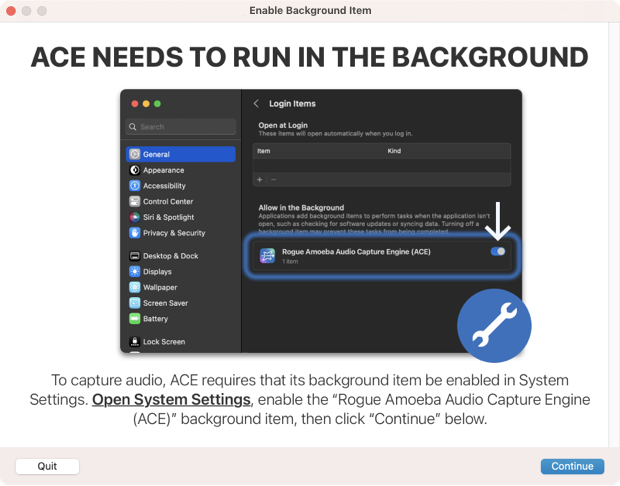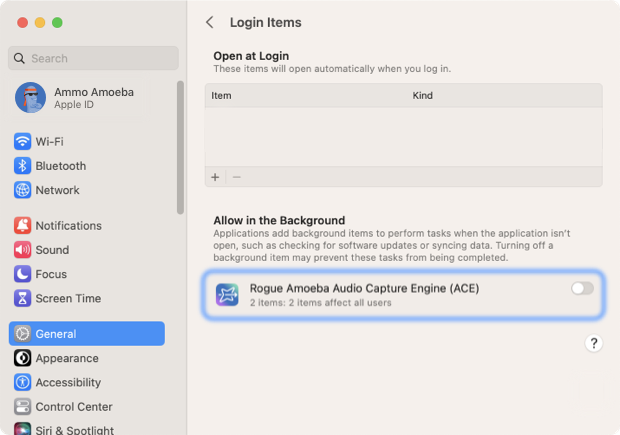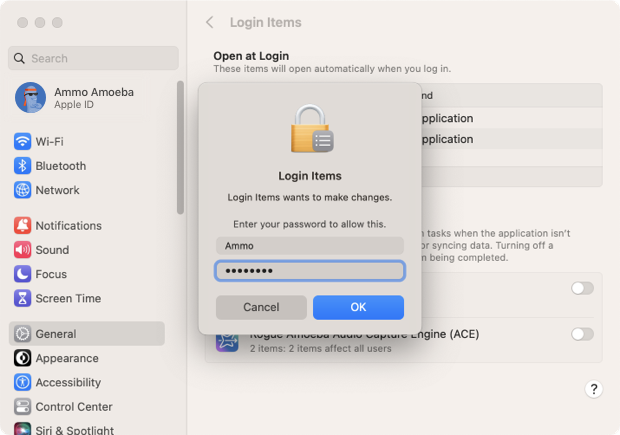Copyright © Rogue Amoeba Software, Inc. All rights reserved.
This article provides details on background processes used by Airfoil for Mac.
On MacOS 13 (Ventura) and higher, options for managing background processes are organized in the System Settings application. Two types of background processes are controllable in MacOS:

Airfoil has two possible background processes: The required “Rogue Amoeba Audio Capture Engine (ACE)” background item and the optional Airfoil Satellite login item.
When you first run Airfoil, it will prompt you to install Rogue Amoeba’s Audio Capture Engine (ACE) component. This essential technology allows Airfoil to access and control audio on your Mac.

Airfoil needs the ACE process to be enabled in the background to function correctly. If it’s disabled, you’ll be prompted to re-enable it when Airfoil is launched. See the Re-enabling background items section below for more detailed instructions.
To ensure that your Mac is always ready to receive streaming audio, you can add Airfoil Satellite to your login items from the app’s Settings window. In the User Interface tab, turn on the Start Airfoil Satellite at login option.

The ACE component must be allowed to run in the background for Airfoil for Mac to function properly. If it’s disabled, you’ll be alerted to re-enable it when Airfoil for Mac is launched.
Re-enabling a background item is easy, and can be done in just a few seconds.
From the warning prompt in Airfoil for Mac, click the Open System Settings link.

Alternately, open the System Settings app, click the General option on the left side, then click the the Login Items option.
Find ACE listed in the Background Items section, and click the switch to re-enable it.

You’ll be prompted to enter the username and password for an administrator account on your Mac, to authorize the change.

Once complete, return to the app to continue through the process.
Airfoil for Mac will now be able to launch and run as expected.